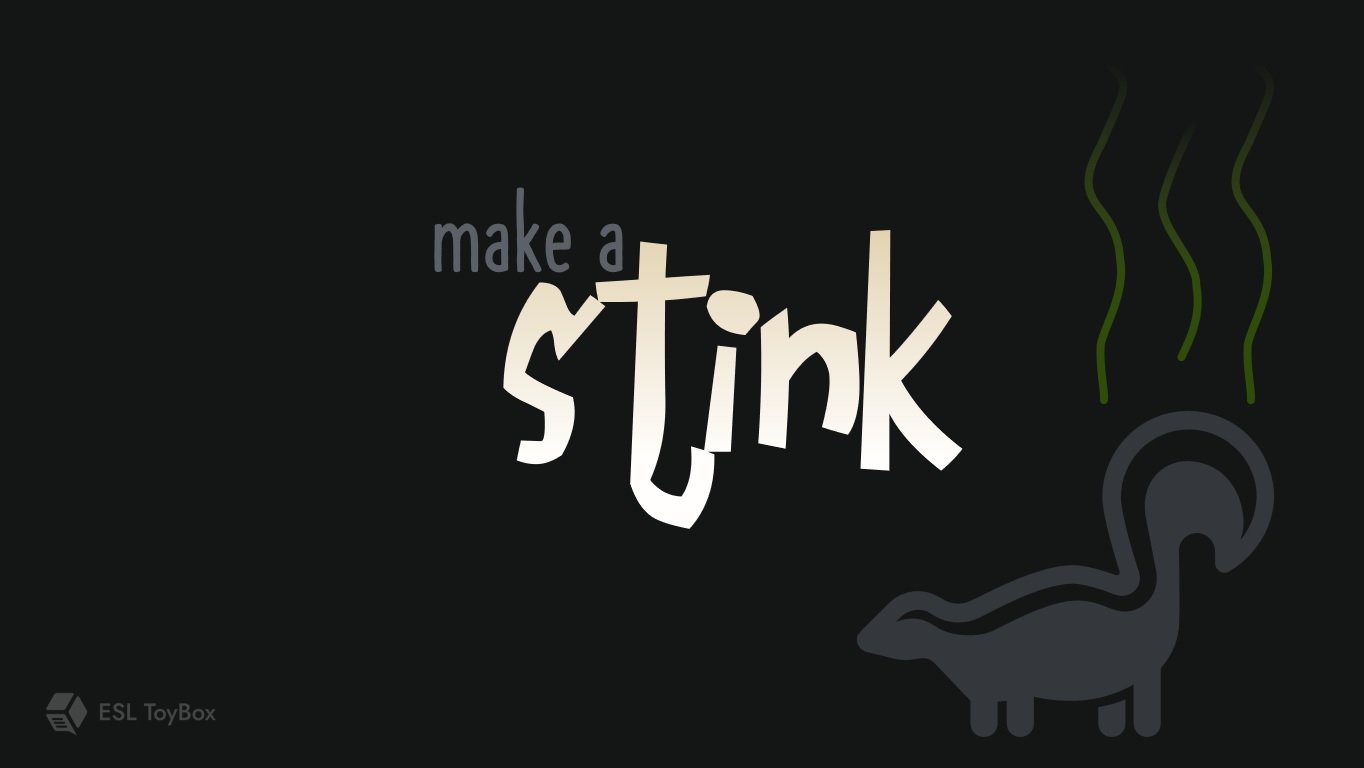Make a Stink
Make a stink means to cause a disturbance or to loudly protest (complain about) something. There are many forms of this phrase that you can see at the end of this article. Thesaurus.com gives an additional 39 synonyms for make a stink.
Example: The child made a stink in the store because her father wouldn’t buy her the toy car.
This phrase was brought up on a Facebook page called Teach & Learn English in Korea. If you have any questions about English or teaching in Korea, join that group. There is a community of well-educated and experienced teachers in that group who can help you. One member asked about the origin of make a stink. This is my attempt to figure it out.
A Lack of Information
Most online dictionaries do not provide an etymology for this phrase or any of the other synonymous phrases. Some did mention that make a stink dates to the mid-1800s but didn’t provide any details. Google Ngram shows a different story. It seems to have been a popular phrase in the 1700s and fell out of favor by the mid-1800s. Since the 1980, it has again risen in popularity. The earlier spike in use was probably regarding the literal use of stink (meaning a foul odor). The more recent spike is from the idiomatic expression. Other phrases like raise a stink, put up stink, and create a stink have been on the rise since the 1920s and lack a literal interpretation. Anyways, the use of stink to mean complaining is attested by 1812.
The first proposed etymology I found on a forum. The user learned that repair crews put up a stink to divert water when repairing a canal. This stink is a series of wooden structures that create a dam around the area the crew wants to work on. The user asked if this was the origin of the phrase. I agree with how the other user responded: “It could be, though I don’t see a direct connection between it and making a protest.”
My Proposal
I was unable to find why stink has come to mean loudly complaining, protesting, or causing a fuss. The synonymous phrases turned up a similar result. I do have a suggestion though. But, I want to point out that it is just my idea and doesn’t have any support online. A stink (n.) has meant an unpleasant odor since the 13th century. I think that someone making a fuss is an unpleasant situation. So, people started using stink to refer to this kind of behavior as an allusion to the unpleasantness of an odor. The key is that it is not a reference to the odor but to the unpleasant situation it creates. Another phrase, “That stinks,” also describes a situation that is unpleasant. So, I feel that stink became associated with unpleasant in the early 20th century.
As a side note, we usually draw stink lines (like the one in the art for today’s phrase) going up from the source. So, the idea of a stench rising might have something to do with that. This might be where the phrase raise a stink comes from or maybe the drawing convention comes from this phrase.
Other forms:
Make a scene
Make a fuss
Make an uproar
Make a ruckus
Raise a stink
Kick up a stink
Put up a stink
Create a stink
Cause a stink
Raise hell
For more English phrases and quotes, follow me on Facebook:
https://www.facebook.com/ESL-ToyBox-112152010890485
Reference:
https://www.usingenglish.com/forum/threads/230015-Origin-of-quot-to-put-up-a-stink-quot
https://books.google.com/ngrams/graph?content=make+a+stink&year_start=1700&year_end=2019&corpus=26&smoothing=3
https://idioms.thefreedictionary.com/make+a+stink
https://www.etymonline.com/word/stink



